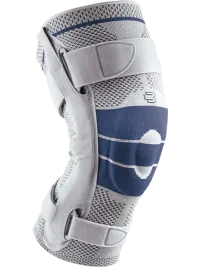What is Osteoporosis?
Osteoporosis is a medical condition in which the bones become weak and brittle. Our bodies are constantly building new bone and absorbing old bone. In osteoporosis, the production of new bone does not keep up with the bone absorption process and the bones get weaker over time. Osteoporosis does not manifest with many symptoms until the bone gets so weak that it fractures or breaks. This is why it is important to get screenings starting at age 65 for women and age 70 for men, sooner if you are at higher risk.
Am I at Risk?
All women over the age of 65 and men over the age of 70 should have routine screenings for osteoporosis. You may want to consult your doctor and they may possibly start screening earlier if you have any of the following risk factors:
- Early onset menopause (before the age of 50) or total hysterectomy before age 50
- Low testosterone levels
- Low BMI or body mass index
- Family history of osteoporosis
- Chronically low calcium or vitamin D intake
- Long term use of medications such as glucocorticoids and some seizure medications
- Smoking
- Alcohol consumption
What Can I Do?
Call our office today or speak with your doctor for a bone health assessment. Screenings usually consist of a risk assessment and Bone density test which measures the density of your bones. The test is quick and painless and very similar to getting an x-ray.
At home, it is important to be sure you are getting plenty of vitamin D and calcium. Youcan either supplement with over the counter vitamins or increase calcium rich and vitamin D fortified foods in your diet. You can also build bone strength with weight bearing physical exercise such as fast walking or muscle strengthening exercises such as lifting weights.
Consult your doctor for vitamin dosing recommendations and before starting a new exercise routine.
When Should I See My Doctor?
If you are at risk based on the factors above, we highly recommend you consult your doctor for a screening. If you have a history of a compression fracture of your back or a fragility fracture, or a broken bone that resulted from a ground level fall or a low mechanism of injury, you may already have osteoporosis. We strongly recommend a screening after fragility fracture, even if you are younger than age 65.
Can Osteoporosis Be Cured?
While we cannot "cure" osteoporosis, it can be treated! Medications are available that can increase the rate that you build new bone or decrease the rate that you absorb old bone. If your bone health assessment shows you are at risk for fracture or you have osteoporosis, your provider will discuss with you which medications you may qualify for and what would be best for you. Calcium and Vitamin D supplementation does not replace the need for these medications but can help prevent osteoporosis in the early stages. Come visit our office to discuss what treatments might be right for you!

Rachel Bates, PA-C is a Certified Physician Assistant practicing at OrthoSouth's clinics in Bartlett, Germantown, and Memphis-Poplar Ave. She possesses a strong interest in osteoporosis, osteopenia, and bone health.

